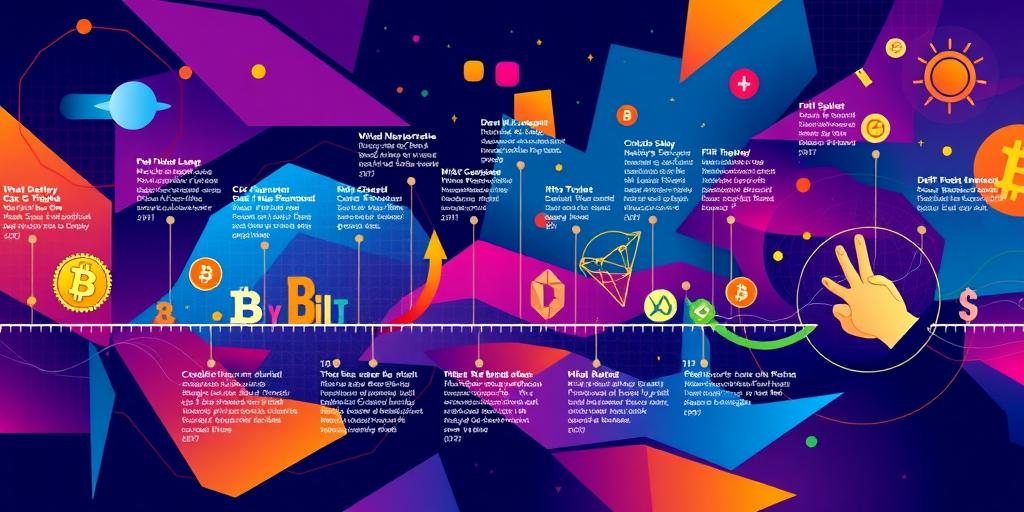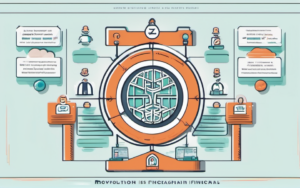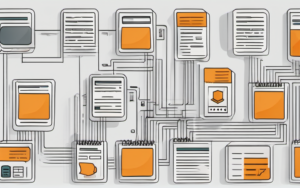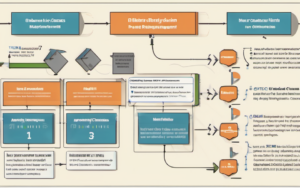The term “blockchain” has become a buzzword in recent years, often associated with cryptocurrencies like Bitcoin. But the technology’s impact goes far beyond digital money, extending to various industries and aspects of our lives. This journey takes us back to the origins of blockchain, explores its transformative power, and delves into its potential to shape the future.
The Dawn of Decentralization: A Look Back at Blockchain’s Origins
The story of blockchain starts with the creation of Bitcoin, a digital currency designed to operate outside the control of traditional financial institutions. Satoshi Nakamoto, the pseudonymous creator of Bitcoin, introduced a revolutionary concept: a decentralized ledger system that could record transactions securely and transparently. This innovation paved the way for blockchain technology.
The Genesis of Bitcoin: A Digital Currency Revolution
Bitcoin, launched in 2009, was the first successful implementation of blockchain technology. It offered a decentralized alternative to traditional financial systems, eliminating the need for intermediaries like banks. Bitcoin’s core innovation was the blockchain, a distributed ledger that records all transactions in a chronological order, making it tamper-proof and publicly accessible.
Beyond Bitcoin: Exploring the Potential of Blockchain Technology
While Bitcoin popularized blockchain, its potential extended far beyond digital currencies. Developers and entrepreneurs recognized the transformative power of blockchain technology, leading to the emergence of diverse applications in various fields. Blockchain’s ability to facilitate secure and transparent data exchange, streamline processes, and reduce costs opened up new possibilities across industries.
The Rise of Blockchain Applications: Transforming Industries
Blockchain technology has moved beyond its early roots in cryptocurrencies, finding applications in numerous sectors. From finance to healthcare, supply chain management to voting systems, blockchain is reshaping industries and empowering individuals.
Cryptocurrencies: A New Era of Finance
The rise of cryptocurrencies like Bitcoin, Ethereum, and Litecoin has revolutionized the financial landscape. Blockchain technology enables peer-to-peer transactions without the need for intermediaries, reducing transaction fees and offering greater control over assets. Moreover, blockchain-based platforms allow for the creation of decentralized financial applications (DeFi), offering alternative lending, borrowing, and investment options.
Supply Chain Management: Enhancing Transparency and Efficiency
Blockchain technology is transforming supply chains by providing a secure and immutable record of goods movement. Each stage of the supply chain, from raw materials sourcing to product delivery, can be tracked and traced on a blockchain network, enhancing transparency, reducing fraud, and improving efficiency.
Healthcare: Securing Patient Data and Streamlining Processes
Blockchain technology is being utilized in healthcare to secure patient data and streamline processes. Electronic health records (EHRs) can be stored securely on a blockchain, ensuring data integrity and patient privacy. Blockchain can also be used to manage medical supply chains, track prescription drug distribution, and facilitate secure medical data exchange.
Voting Systems: Ensuring Secure and Transparent Elections
Blockchain technology offers a secure and transparent solution for electronic voting. By recording votes on a distributed ledger, blockchain systems eliminate the risk of fraud, manipulation, and double-voting, ensuring the integrity of elections.
The Future of Blockchain: Unlocking New Possibilities
Blockchain technology is rapidly evolving, opening up exciting possibilities for the future. From decentralized finance to the metaverse, blockchain is poised to reshape industries and redefine our interactions with technology.
Decentralized Finance (DeFi): Reimagining Financial Services
DeFi is a rapidly growing area of blockchain technology that aims to democratize financial services. DeFi platforms offer alternative lending, borrowing, and investment options without the need for traditional intermediaries. This allows individuals to access financial services more easily and at lower costs.
The Metaverse: Building a Decentralized Virtual World
The metaverse, a virtual world where users can interact, socialize, and conduct business, is another promising area for blockchain technology. Blockchain can be used to create a decentralized and secure metaverse, enabling ownership and control over digital assets.
The Internet of Things (IoT): Connecting Devices Securely
Blockchain technology can secure the Internet of Things (IoT) by providing a secure and reliable platform for data exchange between connected devices. Blockchain can help prevent data breaches and ensure the integrity of data collected by IoT devices.
Challenges and Considerations: Navigating the Blockchain Landscape
While blockchain technology holds immense promise, it also faces challenges that need to be addressed. These challenges include scalability, regulation, and security.
Scalability and Performance: Addressing the Growing Demand
As blockchain adoption grows, the need for scalable and high-performance networks becomes critical. Existing blockchain platforms are facing limitations in transaction throughput and speed, which can hinder their adoption by mainstream industries.
Regulation and Compliance: Ensuring Responsible Development
The lack of clear regulations and compliance frameworks presents a challenge for the blockchain industry. Regulatory uncertainty can hinder innovation and investor confidence. Governments and regulators need to develop frameworks that encourage responsible development and innovation while protecting consumers.
Security and Privacy: Protecting Data and Assets
Security and privacy are paramount concerns in the blockchain ecosystem. Ensuring the security of blockchain networks and protecting user data is essential for building trust and widespread adoption.
Embracing the Blockchain Revolution
Blockchain technology has already had a profound impact on society, revolutionizing finance, supply chain management, healthcare, and other industries. As blockchain technology continues to evolve, it holds the potential to unlock new possibilities, reshape our digital interactions, and create a more secure, transparent, and equitable world. The journey of blockchain is still unfolding, and its impact on our lives is only just beginning.




